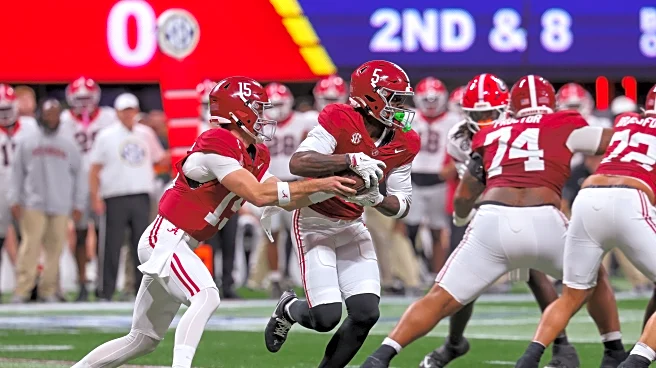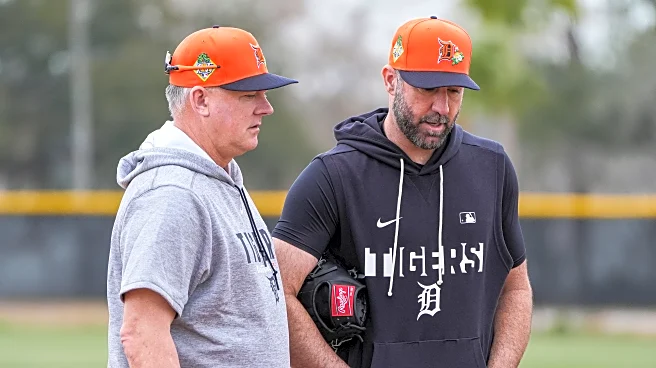What's Happening?
Senator Seriake Dickson of Bayelsa West has announced his withdrawal from a Senate Committee on Local Content investigation into the alleged diversion of $14.8 million linked to Timipre Sylva, the former Minister of State for Petroleum Resources. Dickson,
who served as governor of Bayelsa State before Sylva, stated that his decision was based on personal principles and a commitment to avoid political actions that target opponents. He emphasized that any investigation should be comprehensive, reviewing the entire management of the fund from its inception rather than focusing on a single transaction. Dickson also noted that the Economic and Financial Crimes Commission (EFCC) is already involved in the matter. He expressed his belief in resolving political disagreements at the polls rather than through attempts to damage careers, and reiterated his support for individuals from Bayelsa and the Niger Delta serving at the federal level.
Why It's Important?
The withdrawal of Senator Dickson from the probe highlights the complexities of political relationships and the challenges of maintaining impartiality in investigations involving former colleagues. His stance underscores the importance of comprehensive investigations that consider the broader context of financial management rather than isolated incidents. This approach could influence future legislative inquiries, promoting fairness and thoroughness. Dickson's decision also reflects the ongoing tension between political integrity and partisan interests, which can impact public trust in governmental processes. By advocating for a fair and comprehensive review, Dickson sets a precedent for handling similar cases, potentially affecting how political figures navigate investigations involving their predecessors or political allies.
What's Next?
As the Senate Committee on Local Content continues its investigation, the focus may shift towards a broader review of the fund's management, as suggested by Senator Dickson. This could lead to more extensive scrutiny of financial practices within the Ministry of Petroleum Resources, potentially uncovering systemic issues. The committee's findings could prompt legislative or regulatory changes aimed at improving transparency and accountability in government financial management. Stakeholders, including political leaders and civil society groups, may react to the investigation's outcomes, influencing public discourse on political ethics and governance. The EFCC's involvement suggests that legal proceedings could follow, depending on the investigation's findings.
Beyond the Headlines
Senator Dickson's withdrawal from the probe raises questions about the ethical responsibilities of lawmakers when dealing with investigations involving personal or political connections. His decision to recuse himself highlights the potential conflicts of interest that can arise in political settings, emphasizing the need for clear guidelines on participation in such inquiries. This situation also reflects broader cultural and ethical considerations within Nigerian politics, where personal relationships and regional affiliations can influence political actions. The emphasis on comprehensive investigations may encourage a shift towards more transparent and accountable governance, fostering public confidence in political processes.
















